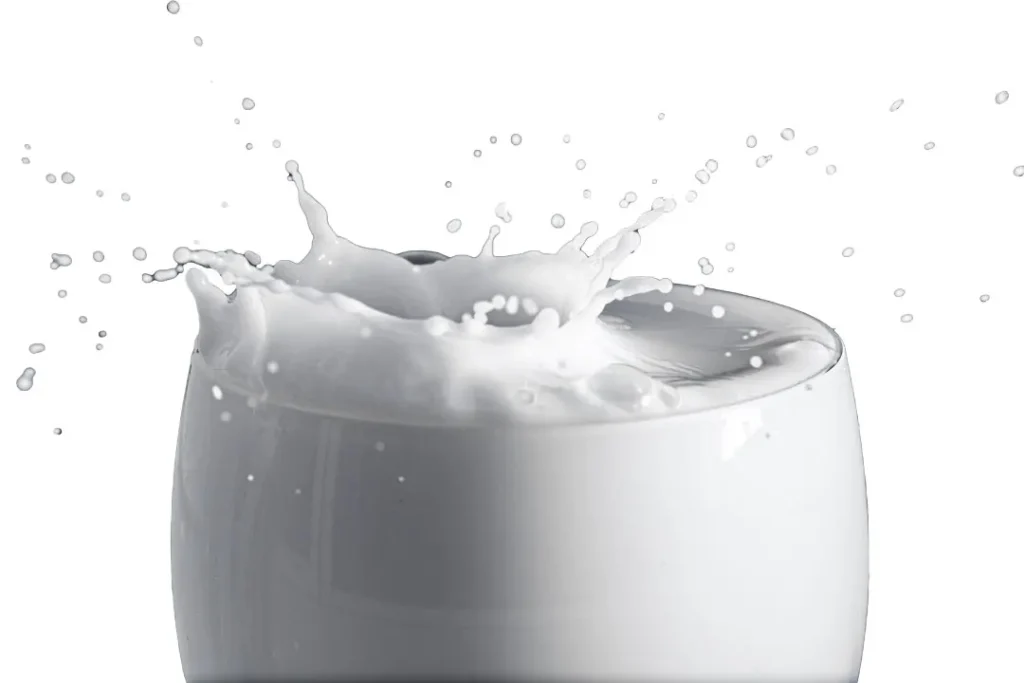If you want to see results at the gym, then how you fuel your workouts is just as important as your exercise program. We’ll discuss the benefits of collagen protein vs whey protein to help you decide which protein supplement is right for you.
If you’re looking to build muscle, then your workout plan likely includes protein supplementation. Protein, often cited as “the king of macronutrients,” can be obtained through foods such as meat, poultry, eggs, or fish. Its benefits are also versatile – besides improving physical function, protein assists in processes such as maintaining metabolism, helping carry oxygen in the blood, and even healing injuries.
But if you’re looking to fuel your workout by supplementing a higher protein intake into your diet, you’re likely to face the choice of which protein to use. Whey protein, perhaps the most popular option, offers a wide range of benefits. Similarly, collagen, often referred to as “the most abundant protein in your body,” also presents compelling advantages. Keep reading to discover which protein supplement — whey or collagen protein — aligns best with your workout needs.
Collagen Protein vs Whey Protein: The Best Protein to Optimize Your Fitness Plan is an original (Health11News) article.
You May Also like:
Jay Robb Protein Powder vs Nuzest Clean Lean Protein
Ghost Vegan Protein Powder vs Nuzest Clean Lean Protein
Collagen protein vs whey protein:
How protein supplementation can benefit gym goers
Protein, composed of over twenty amino acids, serves as the building blocks for cells, muscles, and virtually every part of your body. When you consume protein, it is broken down into these amino acids, which aid several key bodily functions, including muscle growth. This is particularly important after exercising, as rigorous exercise can result in micro-tears within the muscles. In order to rebuild and repair muscle tissue, it’s important to consume “more protein than what is broken down.”
While protein intake through diet is generally enough to sustain your overall health, protein supplementation can play a crucial role in optimizing muscle repair and growth. Indeed, research shows that protein supplementation over time may “promote muscle hypertrophy and enhance gains in muscle strength.” A 2020 study even concluded that “dietary protein supplementation significantly enhanced changes in muscles in muscle strength and size.”

Collagen protein vs whey protein:
The benefits of each for fitness
Whey protein and collagen are two popular forms of protein supplementation. Whey, derived from milk, is considered a complete protein, which means it contains all nine essential amino acids that the body can’t produce on its own. Whey protein offers a wide range of benefits, especially in supporting effective weight loss and promoting the growth of lean muscle tissue. However, those with lactose intolerance may experience digestive issues when consuming whey protein.
On the other hand, collagen protein, often associated with promoting skin and joint health, has been found to play a large role in boosting skeletal muscle mass and reducing post-workout muscle soreness. While both proteins are effective for muscle growth and recovery, studies suggest collagen may be more beneficial in “improving joint functionality and reducing joint pain” while having a more impactful effect on muscle protein synthesis (MPS) — the process of producing new muscle protein — compared to other protein sources.

Collagen protein vs whey protein:
Supplementation as you age
Protein supplementation is also considered important for aging muscles. As we grow older, the gradual loss of muscle mass, known as sarcopenia, affects us both inside and outside the gym. Sarcopenia can affect people as early as in their 30s and carries a range of health risks, including an increased likelihood of falls, fractures, and physical disabilities. Whey protein can potentially offset these risks, as the amino acids it contains are considered especially helpful to the body’s ability to heal wounds.
On the other hand, collagen protein is renowned for its potential restorative benefits. Research, including a 2020 study, has demonstrated its significant antioxidant properties that promote skin repair and strengthening. Moreover, collagen protein contains a large concentration of calcium, which aids in improving bone metabolism and cardiovascular function; it not only contributes to the growth of skeletal muscle mass but also reinforces it.

Collagen protein vs whey protein:
Frog Fuel Power Protein is a premier collagen protein supplement
Only one protein supplement offers the diverse benefits of protein combined with the exciting potential of collagen: Frog Fuel Power Protein. Derived from nano-hydrolyzed collagen, this liquid protein shot is “fortified to be a complete protein,” unlike other collagen protein supplements. This allows Frog Fuel to provide comprehensive support needed for the crucial muscle growth and repair processes associated with exercise.
Additionally, it includes a selection of fortified amino acids, including glutamine, which is the most abundant amino acid in the body and a key player in the immune system and brain function. Another amino acid included is taurine, which is increasingly popular among athletes due to its performance-enhancing properties and its ability to aid in recovery, as it “affects skeletal muscle contradiction by decreasing oxidative stress.”
In addition to its performance and recovery benefits, Frog Fuel’s hydrolyzation process allows it to be highly digestible; it can be digested within 15 minutes, significantly faster than whey protein, which typically takes about an hour (see their included research). This rapid digestion not only affords users comfort but also allows Frog Fuel to naturally break down collagen to less than 1% of its original size, enabling better absorption by the body. As a result, Frog Fuel can effectively fulfill the inherent strengths of collagen: promoting stronger joints and leaner muscles, significantly accelerating wound recovery, and even bolstering the immune system.

Collagen protein vs whey protein:
Growth, recovery, and the long-term
When it comes to protein supplementation for your workout needs, it’s essential to recognize that it’s not solely about gains. There is a crucial aspect that goes hand in hand with whatever growth you’re aiming for, and that’s recovery. Just as you push yourself to the limit, allowing yourself to heal properly and come back stronger is paramount.
Protein supplementation can help with both sides of the workout coin, but it must be taken with consideration of the long term. Your choice of supplementation should align with your growth goals while also ensuring the sustainable maintenance of that growth in a healthy manner. Whether you opt for collagen protein or whey protein, the gains of today should not be a pyrrhic victory for tomorrow.
Further Reading for Additional Reference:
Live Science: Collagen vs whey protein: Which is better for your health goals?
New York Times: Are There Benefits to Collagen Supplements?
U.S. News and World Report: Can Collagen Reverse Aging?
Important Note: The information contained in this article is for general informational purposes only, and should not be construed as health or medical advice, nor is it intended to diagnose, prevent, treat, or cure any disease or health condition. Before embarking on any diet, fitness regimen, or program of nutritional supplementation, it is advisable to consult your healthcare professional in order to determine its safety and probable efficacy in terms of your individual state of health.
Regarding Nutritional Supplements Or Other Non-Prescription Health Products: If any nutritional supplements or other non-prescription health products are mentioned in the foregoing article, any claims or statements made about them have not been evaluated by the U.S. Food and Drug Administration, and such nutritional supplements or other health products are not intended to diagnose, treat, cure, or prevent any disease.


